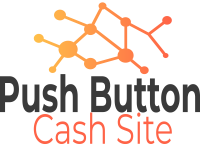 Anyone who has experienced the situation of having a broken pipe in your house, an interview for your first job, a perrengue in a romantic relationship, or even the declaration of the Income Tax, must have thought something like “Wow, I don’t know how to do it this”. And that thought has nothing to do with burnout syndrome or a symptom of inborn disability. On the contrary, this is a common and completely valid question, since, most likely, no one taught you such life skills in advance.. It is the “live there, that life teaches you”. But are things divided between what can be taught and what cannot? Is there a way to prepare for these situations, so as not to be caught off guard? When should we teach our little skills that every adult needs to know? Is it up to the school or the family?
Anyone who has experienced the situation of having a broken pipe in your house, an interview for your first job, a perrengue in a romantic relationship, or even the declaration of the Income Tax, must have thought something like “Wow, I don’t know how to do it this”. And that thought has nothing to do with burnout syndrome or a symptom of inborn disability. On the contrary, this is a common and completely valid question, since, most likely, no one taught you such life skills in advance.. It is the “live there, that life teaches you”. But are things divided between what can be taught and what cannot? Is there a way to prepare for these situations, so as not to be caught off guard? When should we teach our little skills that every adult needs to know? Is it up to the school or the family?
Do schools teach us to be adults?
You have probably heard that famous phrase: what we don’t learn in school, life teaches. But are we really looking for the right skills to be taught? Or is it that by excluding a number of other equally important life skills, we are not limiting learning?
So, hands on!
For this reason, it is important that parents, together with the school, encourage their children to participate in life activities, because in doing so the benefits are undeniable. The greater and better the relationships that the child makes between the concepts of the fields of knowledge and the practice, the more connections focused on problem solving the child will have.
Problem solving is the key skill for any professions that appear in the future . Because practically all activities require this skill at some level.
Andrea Moore, an American teacher, implemented an innovative subject for students between seven and twelve years old, the subject is called “Family, Consumer Sciences and Health”. This discipline addresses topics from food and human development to chemistry and how to use it to clean the house and prepare a healthy meal. In her podcast, Andrea says that she has already taught a student how to break an egg. Funny to think that in the face of everyday life, there is no point in knowing everything about history if you can’t break an egg!
This thinking, in a way, reflects what Dr. Peter Hirst, Education Executive at MIT (Massachusetts Institute of Technology) argues: that students need technical skills, but they also need to know and read Shakespeare, as there is a confluence between self-knowledge and cognitive skills . Wonderful that! The human is a whole, it is the integration between understanding, understanding the other and understanding the world, in a dialectical way .
Thus, it is vital that your child is involved, on some level, in experiences such as tidying up the house, cooking, doing the market, dealing with money, fixing things, organizing spaces, understanding a basic policy, poverty, society, taxes and constitution. To be able to architect ideas that move between different experiences. After all, in the end, this articulation and connection is fundamental for the construction of critical thinking and, consequently, for human plenitude.

